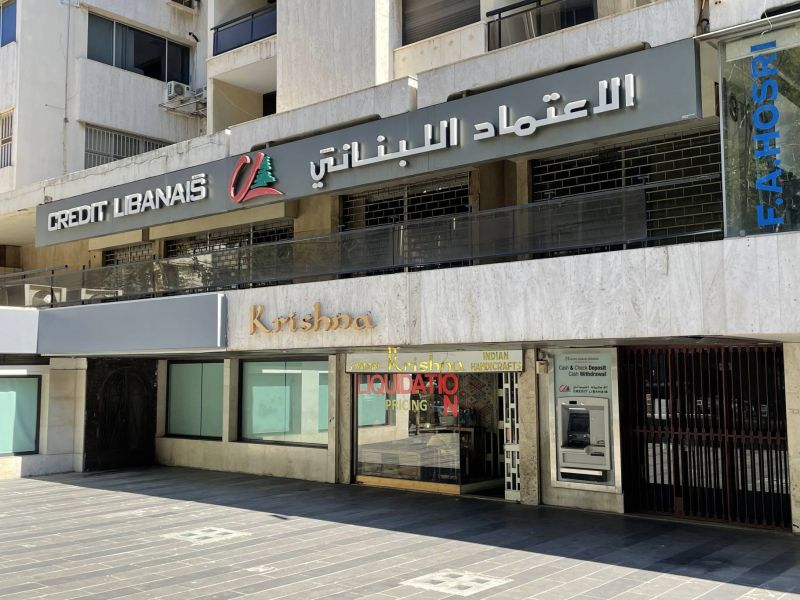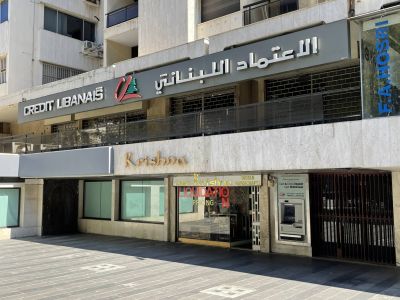
A branch of Lebanese Credit bank, closed in the district of Badaro, Beirut. (Credit: Philippe Hage Boutros/L'Orient-Le Jour)
As the Association of Banks in Lebanon (ABL) previously announced, banks reopened on Monday as part of a one-week suspension of their strike that began on Feb. 6.
The ABL could decide to end the strike during its general assembly meeting scheduled for Friday if conditions are met, sources from three different banks told L'Orient-Le Jour. They spoke on condition of anonymity given the sensitivity of the situation.
According to the same bank sources, “a calm atmosphere” prevailed on Monday, despite the high number of visitors.
“Some banks welcomed customers directly, while others continued to operate on appointment. There were no notable incidents despite some tension,” one source said.
With the exception of a heated exchange between a depositor and the staff at a Byblos Bank branch in Jounieh, no incidents made headlines.
Sayrafa accessible to civil servants
On Monday, civil servants were given the opportunity to convert Lebanese lira into dollars at BDL's subsidized Sayrafa rate of LL45,200 to the dollar, rather than the parallel market rate of LL83,000 to the dollar.
This exchange was made possible by BDL's Circular No. 161, which was extended until the end of March.
The three sources also confirmed that, since mid-January, depositors working in the private sector and in companies can no longer benefit from BDL's Sayrafa rate.
Given Lebanon's ongoing economic crisis, the collapse of the Lebanese lira against the dollar and the lack of liquidity in dollars, banks cannot honor all the deposits they hold.
BDL sells dollars to the banks requested by their customers via Circular No. 161.
ABL called for a strike at the beginning of February to protest the proceedings initiated by Mount Lebanon Public Prosecutor Ghada Aoun against several banks for alleged money laundering. The banks claim that Judge Aoun exceeded her jurisdiction and initiated illegal proceedings.
“To end the strike, the banks are waiting for a decisive reaction from either the Higher Judicial Council, the Judicial Inspection Board, or the country's top prosecutor Ghassan Oueidat,” a banking source told L'Orient-Le Jour.
In a statement issued when the strike was announced, the ABL detailed other demands, including the enactment of a capital control law and the “pure and simple” abolition of banking secrecy in Lebanon with retroactive effects, as indicated in Article No. 306/2022 passed in October.
The ruling rendered a month ago by the Court of Cassation in favor of two depositors claiming their dollar deposits from Fransabank also played a role in the bank strike.
The plaintiffs are supported by the Moutahidoun lawyers' collective, one of several local organizations that mobilized against the restrictions on foreign currency deposits unilaterally imposed by Lebanese banks since the beginning of the crisis.
Several bank branches in Beirut's Badaro neighborhood were damaged and set on fire earlier this month during a protest to defend depositors' rights.
This article was originally published in French in L'Orient-Le Jour. Translation by Joelle El Khoury.
